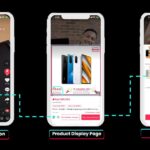- Startup Prophetic opened $2K AI headband registrations to control dreams via ultrasound brain stimulation.
- Claims 400 users signed up quick, but efficacy and safety unclear without human trials.
- Ambitious device spotlights companies aiming to expand human consciousness.
A neural technology startup called Prophetic is opening up registrations to beta test an AI-powered headband that purportedly allows users to induce and control lucid dreams.
The wearable device, called Halo, retails for an estimated $2,000 and utilizes the company’s proprietary AI system called Morpheus-1 to stimulate parts of the brain during REM sleep.
How Halo aims to transform sleep?
According to Prophetic’s CEO Eric Wollberg, the headband detects when the user reaches the REM stage of deep sleep.

It then activates ultrasound holograms that can send signals to the brain intended to trigger conscious dreaming where the user is aware they are dreaming. Prophetic claims over 400 users signed up within 4 hours after the beta program launched.
Question for AI dream tech
While some research shows targeted ultrasound simulation can boost brain function, it is unclear if the device has been thoroughly tested for efficacy or safety concerns. Prophetic did not respond to requests for comment on any human trials performed or potential risks involved.

The ambitious and futuristic dream machine joins a handful of wearable devices on the market focused on sleep and dream enhancement, though many are not yet available for purchase.
Prophetic aims not just to enable medical breakthroughs but also to further explore and expand human consciousness. As the brain technology market heats up, the company’s AI-powered headband represents one of the more intriguing frontiers.









